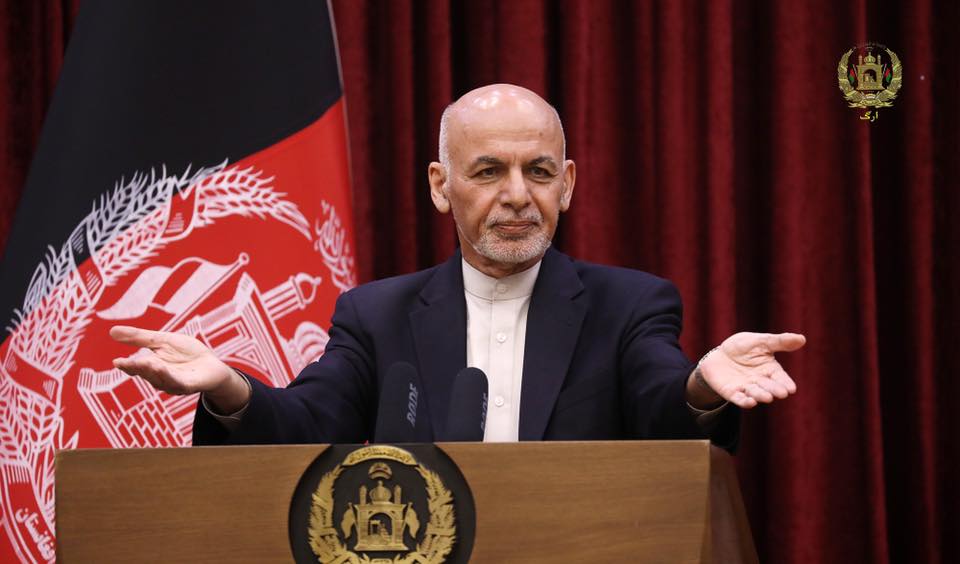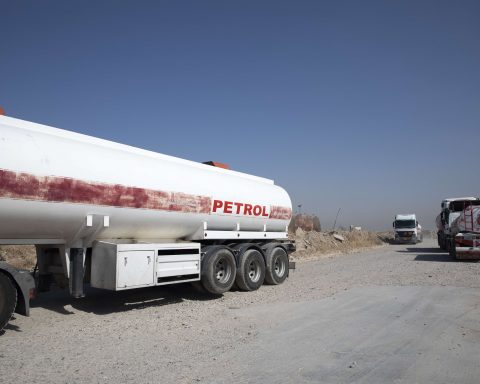On August 31, the US decided to withdraw its last soldier from Afghanistan. The scene was chaotic, as foreign diplomatic missions scrambled to secure a way out of the country, and the international community seemed to be cut off ways to effectively communicate with the new rulers of Afghanistan, let alone tens of thousands of Afghans who worked with them.
One small Gulf state and gas-rich country stepped in to fill the gap on behalf of the Western powers and the international community. Qatar’s assistance to the US, in particular, was invaluable. As the Americans were desperately in need of help, Qatar played a critical role in the evacuation operations facilitating the transferee of over 60,000 Americans and Afghans.
The Qatari ambassador in Afghanistan literarily escorted Americans and other foreign nationals through the streets of Kabul to ensure their safety. Several powerful countries reached out to Qatar to secure their interests. Some of them even decided to relocate their Afghanistan embassy to Doha including the US, the UK, the Netherlands, Italy, and Japan among others. International agencies reached out to Doha asking for help in delivering aid to Afghanistan.
Qatar managed to cement its position as a neutral and credible player by also hosting many of those Afghans who worked with the foreign powers against the Taliban and their families. In an unexpected move, the Taliban asked Qatar and Turkey to lend technical help to operate Kabul’s international airport, the most vital access from and to Afghanistan at this stage.
In short, Qatar shined like never before. The small-Gulf country was uniquely positioned to emerge as a key player and cement its global influence during this crisis. Due to its neutrality, effective diplomacy, and the dynamic response to emergencies such as the current one, Doha was on the table with the big world-class players promoting itself as an indispensable partner, a position that many of its GCC partners would have liked to be in instead of Qatar.
Paradoxically, while the US withdrawal from Afghanistan paved the way for Doha to consolidate its role, flex its diplomatic skills, and deploy its soft power, the situation underscored the shrinking Emirati role and the diminishing Saudi influence on the regional geopolitical theatre in the post-Trump period. This outcome should not be surprising to anyone. Qatar’s emergence as a key player in the Afghan issue is not a coincidence rather than a result of long years of critical and intensive diplomatic, mediatory, and humanitarian engagement during which Doha maintained a well-balanced and credible stance between all the warring parties.
Contrary to Doha’s position, the stance of Saudi Arabia and the UAE was part of the problem rather than the solution. Ironically, Riyadh and Abu Dhabi were two of only three countries in the world that recognized the Taliban before the US invasion in 2001. However, soon after, they flipped against the group. As a part of their redemption, they embraced a hardline anti-Taliban stance and even got involved in aggressive political, economic, and military activities against the Afghan group.
The UAE in particular maintained a small military presence in Afghanistan. In the last few years, Riyadh and Abu Dhabi strengthened their relations with the pro-India and anti-Pakistan government in Kabul. At a certain point, and as a part of their aggressive posture against political Islam, Saudi Arabia and the UAE pressured Pakistan politically and economically to distance itself from countries such as Qatar, Turkey, and Malaysia. They even moved closer to India at Islamabad’s expense.
This stance deprived Saudi Arabia and the UAE of playing a pro-active role in Afghanistan which contributed to the decline of their importance and value in the eyes of the US and other powerful players, especially when it turned out that the US is not going to stay forever in Afghanistan and that Taliban is winning the ultramarathon. This explains why when the US decided to leave last August, Riyadh and Abu Dhabi were among the first countries to evacuate all members of their diplomatic missions and close them.
Some pundits have been trying hard to twist the shrinking role of the UAE and Saudi Arabia as a carefully calculated position that aims to distance them from the Afghan issue rather than being boxed out. Others claimed that the Saudi position is the result of what they called the social liberalization process in the Kingdom while the Emirati position is stemmed from the fact that Afghanistan bears no strategic relevance to Abu Dhabi.
However, experience along with the current situation suggests otherwise. For a long time, both the UAE and Saudi Arabia competed with Doha over hosting an office for the Taliban and mediating between the concerned parties. The two GCC heavyweights restlessly lobbied the US officials to achieve this task instead of Doha but to no avail.
In September 2011, an Emirati official called Mohamed Mahmoud al-Khaja wrote to Jeffrey Feltman, the then-Assistant Secretary of State for Near East Affairs, saying “HH –ABZ- says that we were under the impression that Abu Dhabi was your first choice – not Doha- and this is what we were informed”. When Qatar finally managed to host that office in June 2013, the UAE’s ambassador to Washington Yusuf Otaiba received an angry call from UAE Foreign Minister Abdullah bin Zayed Al Nahyan, complaining that the US decided to choose Qatar over the UAE in this matter.
When Saudi Arabia and the UAE failed to achieve the task instead of Qatar, they accused Doha of financing terrorism, citing its decision to host an office for the Taliban as evidence. While Riyadh and Abu Dhabi might try to play down the increasing value of Qatar in the eyes of the international stakeholders at the current stage given the al-Ula agreement, the same thing cannot be said about the increasing role of Turkey and Iran in Afghanistan. The two non-Arab states managed to sense the outcome in an early stage and adjusted their position accordingly.
For example, Iran; a country that helped the US to topple the Taliban, engaged with the Taliban on so many levels during the last year. When it comes to Turkey, despite its controversial offer to run and secure Kabul’s airport, the Taliban ended up asking Ankara – along with Doha – to operate it. Taliban even said that it needs Turkey’s friendship, support, and cooperation the most.
Unlike Saudi Arabia, the UAE decided to launch rapprochement efforts with Tehran and Ankara long before the US leave Afghanistan. Moreover, Abu Dhabi must have calculated that staying on the sideline of the events would not serve its interest. Therefore, eyeing Afghanistan’s foothold amid Qatar’s strong sway, it decided to take part in the airlift operations, send aid, host US-trained Afghan pilots, other personnel, and former Afghan President Ashraf Ghani, who reportedly fled the country with $169 million in cash. Moreover, the Taliban uncovered that Emirati officials tried to engage with them directly after controlling the airport.
Contrary to the Qatari active role and the Emirati effort to stay in the game, Saudi Arabia seems to be in a state of stagnation. Riyadh recently mended fences with Pakistan, but beyond that, no concrete measures are taken. Currently, Saudi Arabia enjoys no good relations with any of the regional powers. Furthermore, its newly emerging special relation with Abu Dhabi is fading away amid the increasing disagreements on a host of bilateral and regional issues. If something, the Afghani issue showed that the traditionally heavyweight player in the Gulf has nothing to offer let alone to balance the moves of its regional peers on such complex geopolitical theatre. However, whether this trend will be changed shortly remains to be seen.













